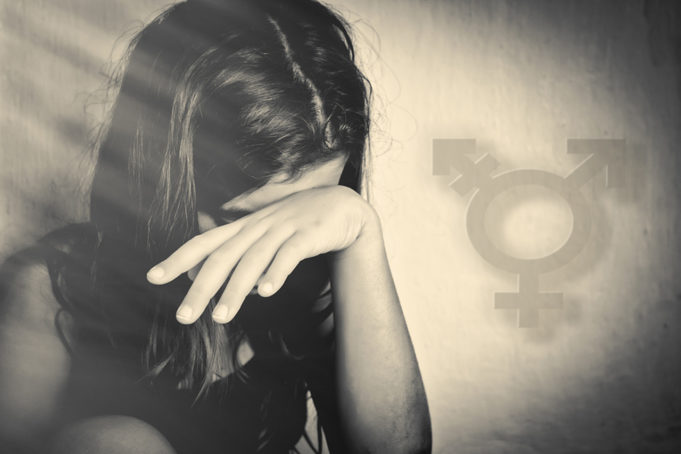They say when you transition your loved ones also transition along with you. Those who are close to you go through their own adjustment period. In some cases, it is a complete shock when you come out as transgender to your friends and family. In other cases, it may be surprising, but maybe it is not as shocking or there might have been some signs along the way. Either way they usually go through a period where there is a feeling of loss or a time of mourning.
“Watching people mourn the loss of you while you are standing right in front of them is a surreal experience that only someone who is transgender can truly understand.”
From my perspective as a transgender person, I must admit I am perplexed by the grieving period. Watching people mourn the loss of you while you are standing right in front of them is a surreal experience that only someone who is transgender can truly understand. It feels as if you are Patrick Swayze in the movie Ghost when he is trying to talk to Demi Moore, but she doesn’t see that he is there. Except in my case, I am trans girl and of course, I am not a ghost, but I guess in a way my former existence is.

I am right here, living and breathing. I am the same person, with the same brain, thoughts, and experiences. To me the only thing that has changed is my gender presentation. But I also see myself as finally being alive, finally living that life, and no longer in denial about who I really am. I am no longer this miserable person who could not get out of their own way. The one who was too afraid to be whom they really were. I see myself as a better and more honest representation of who I am. I wish it were easier for everyone else to understand it as easily as I do now, but that is not realistic considering how long it took me to realize these things myself.
My problem is that I find it difficult to comprehend how others can be so attached to anyone’s gender. To me, it doesn’t make much sense because I know people who are all over the binary spectrum. I have non-binary friends where if I were attached to their gender presentation one day, I would be seriously disappointed the next when they presented otherwise. To me, the whole notion is silly, but I have been dealing with gender all my life. Most cisgender people never had to even think of it, and now when they do, particularly when it comes to a friend or family member, there is a sense of loss.

I must admit I often feel torn over this. Though I am lucky to have people around me who are accepting, I can sometimes sense the feeling of grief in their voice when I am speaking with them. Sometimes I just see it in their eyes. I have my daughters, and though we have evolved past some of the feelings of loss and our relationships have become even stronger, a part of me still feels horrible that they may feel the loss of having a male figure in their lives. On the other hand, I am proud to have raised strong women who realize that gender has nothing to do with one’s ability to be a good parent. They realize that all that matters is love, and though fitting in with society’s norms may be an easier road, the more difficult path bears fruit to a truly honest and unconditional love that many people never truly get to experience.
“Usually, we can easily accept someone’s changes in presentation without having to grieve, but when those perceived changes have to do with gender, it is a different story.”
However, I do find it a bit ridiculous that another person could mourn the fact that my gender is not what they thought it was. We all change throughout our lives, but usually we don’t mourn the fact that someone changes their hair color, or the way they dress in their day-today lives. We don’t grieve when someone loses 50 pounds or their old nose when they have a rhinoplasty. Usually, we can easily accept someone’s changes in presentation without having to grieve, but when those perceived changes have to do with gender, it is a different story. It is because our society is built around the concept of a binary existence. Ironically people see what I have gone through as change, but to me it was just an acceptance, a revelation of truth. I find myself feeling responsible for their sense of loss because previously I wasn’t honest with myself. If I were able to understand who I was and had I presented myself honestly all along, there wouldn’t have been anything to feel a sense of loss over.
The problem here is perspective. From the way I see it, the thought of mourning my former presentation is ridiculous, but that is because I am only able to look at it from the perspective of someone who is transgender. I am not able to understand this sense of loss. That is something only a cisgender person who going through these feelings can truly understand. Cisgender people don’t usually spend their whole lives wrestling with gender, so it is different from their perspective. In the end, just as much as being the one who is grieved while they are still alive is something only a transgender person can understand, the sense of loss that those around us are feeling is something your loved ones can only understand. As happy as I am now that I am living my truth, a part of me is still sorry for their loss.
































